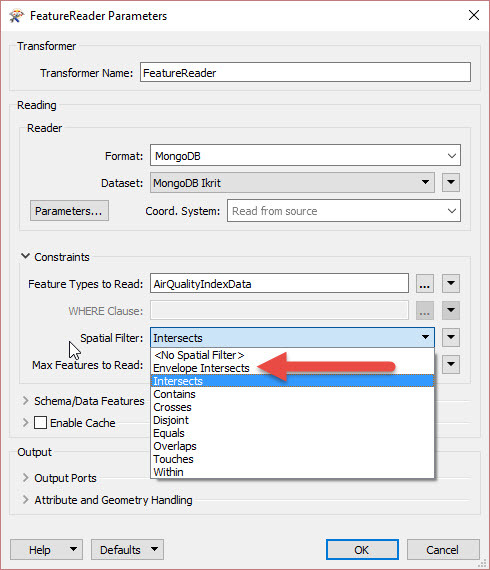Hello,
we are having a problem trying to read a MongoDB collection using a FeatureReader. We are reading a large database and only require data which falls within a bounding box. The FeatureReader constriants for MongoDB include a spatial filter - but selecting one creates the following warning:
`MONGODB' does not support querying by spatial predicate, but supports envelope queries.
It also advises that equivilent results will be performed by FME locally, but this does not work. Envelope queries are supported, but it takes a huge amount of time.
If MongoDB does not support spatial queries within FME, can anybody suggest an alternative to the Envelope query, which seems to take much longer than should be necessary.
Thanks


